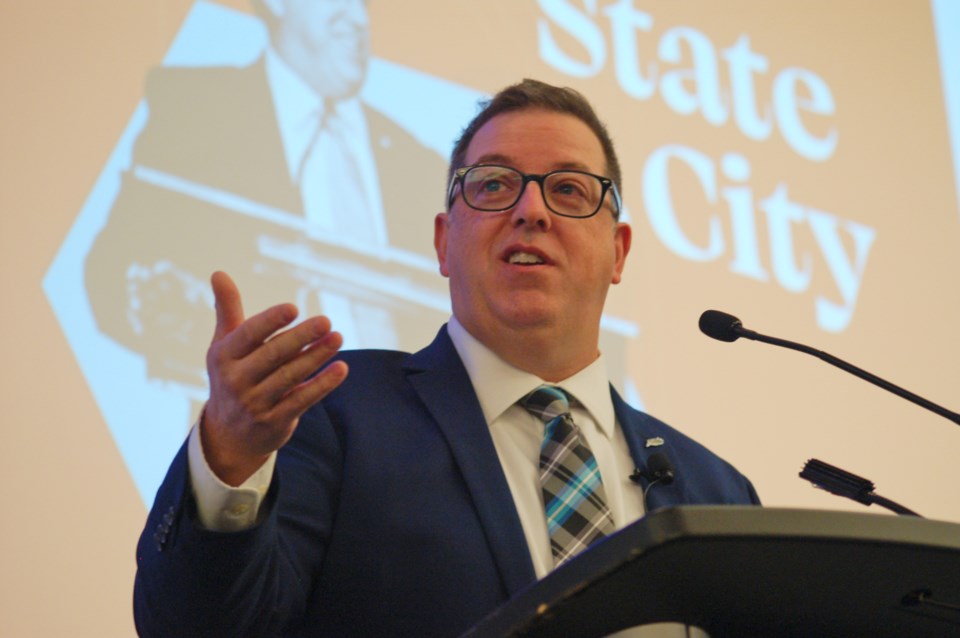As a surge in the number of first-year university students descend on the city in the coming weeks, there are concerns in the community about the impact on housing availability and affordability as well as food banks and other social programs – all of which are already strained.
During Thursday morning’s session of Breezy Breakfast, a weekly community event that brings in guest speakers, Mayor Cam Guthrie was asked what the University of Guelph is specifically doing to mitigate those added impacts.
“Nothing that I’m aware of,” he responded. “I warned them of those exact issues, and I would include transit on that list."
“We’re going to have to see what the ultimate impacts are as we creep closer to the start of the school year.”
About 7,800 first-year students have accepted offers to attend the U of G beginning in September, which is more than a 50 per cent increase than last year.
It was revealed last month that roughly 1,300 of them can’t be accommodated in student residences, sending them looking for living space in the community.
That number’s down to about 850 students, Guthrie said, explaining he now receives weekly updates from the university.
“That’s still an 850-person problem,” the mayor said, noting the reduction doesn’t mean fewer students. “I could mean that some of them just had to find a place to live off-campus because (university residence) is not available to them. That means that all those students are now eating up the inventory of places to rent in the city.”
Guthrie said he receives five or six calls each week from “very, very upset” parents, though he has no direct influence on what happens at the university.
“I don’t blame them for calling because they’re grasping at straws because they are from out of town, like two hours away, three hours away and they do not know where their child is going to live,” he said. “As a fellow parent, I can understand why they are so very concerned.”
Asked later in the event what advice he’d offer existing residents about addressing housing issues, Guthrie urged them to show support for housing projects making their way through the approvals process.
“Come to council and delegate in favour of new developments that are coming forward that make sense, especially for your neighbourhoods where you might start to be seeing change,” he said, acknowledging change can be difficult.
“But what we need is, we actually need more people to come to council and say ‘yes, I want this development in my neighbourhood. Yes, in my backyard.’ We need more of those voices to try to get more housing built so that we have more supply.
“I just cannot stress enough that Guelph already has a very difficult rental market and has for a very, very long time. One of the things that’s going to help with that is more supply.”
